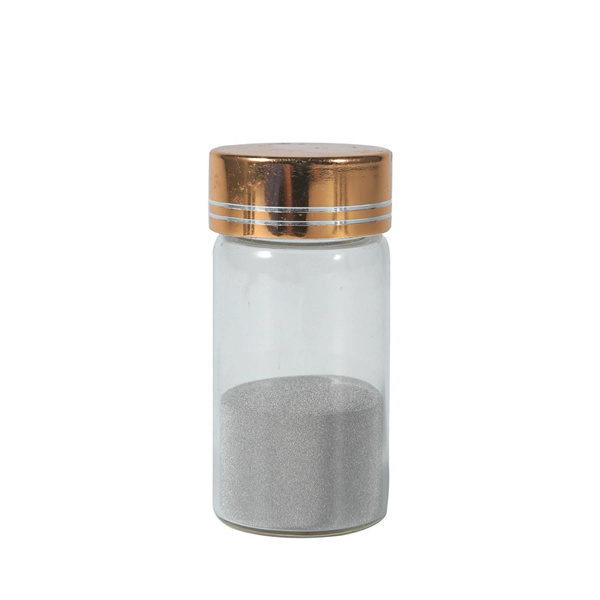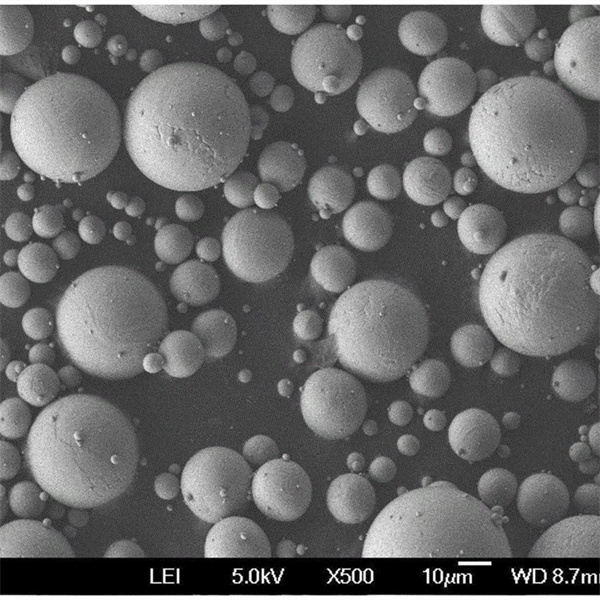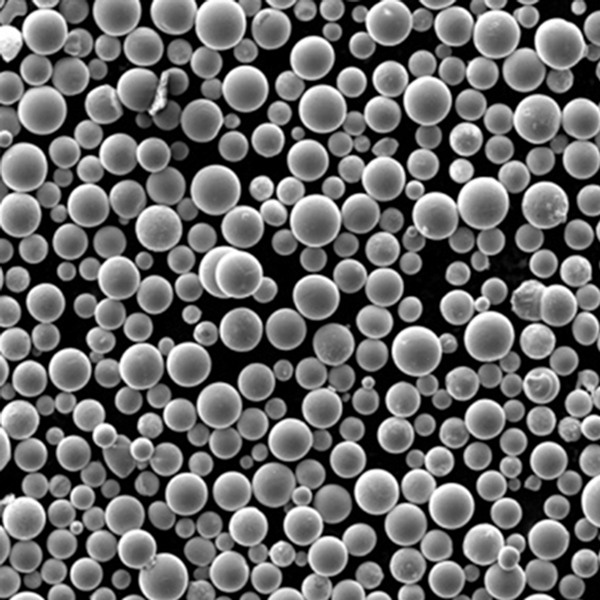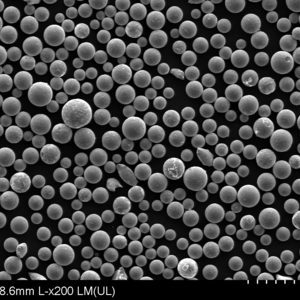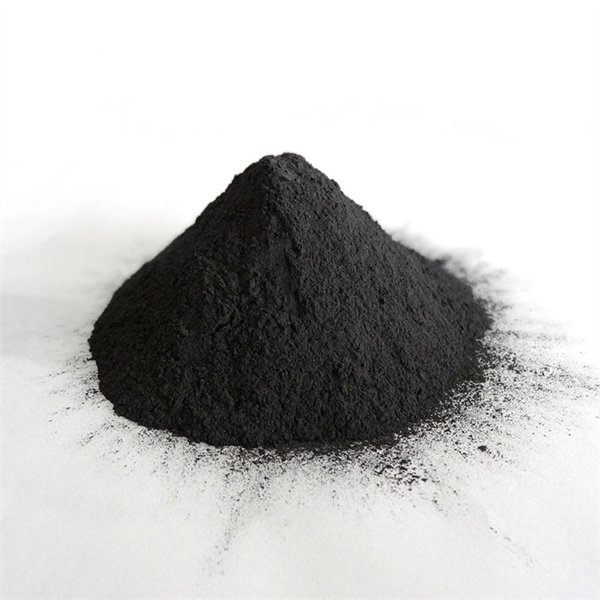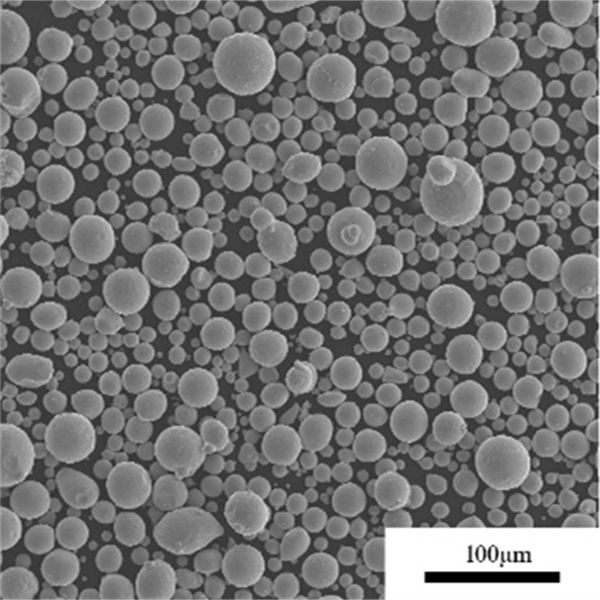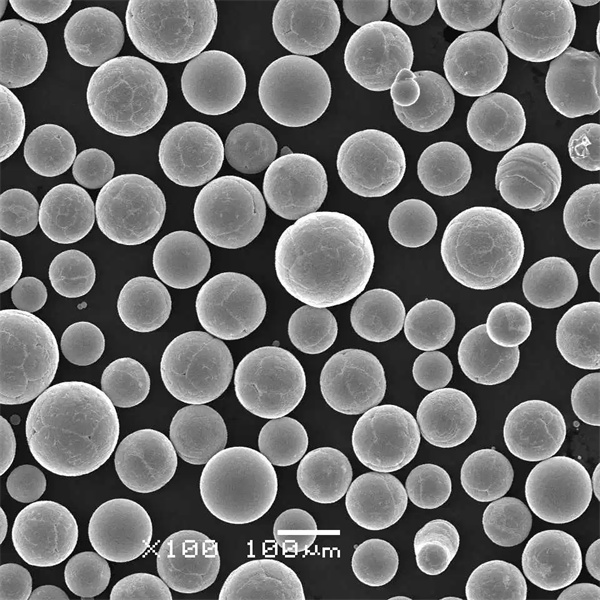TC4 ELI Powder
TC4 ELI powder is a titanium alloy known for its exceptional mechanical properties and biocompatibility. It is a variant of Ti-6Al-4V alloy, specifically developed for critical applications in industries such as aerospace, medical, automotive, and sports equipment manufacturing. TC4 ELI powder exhibits enhanced purity and reduced interstitial elements, making it highly desirable for various advanced applications.
Low MOQ
Provide low minimum order quantity to meet different needs.
OEM & ODM
Provide customized products and design services to meet unique customer needs.
Adequate Stock
Ensure fast order processing and provide reliable and efficient service.
Customer Satisfaction
Provide high quality products with customer satisfaction at the core.
share this product
Table of Contents
TC4 ELI powder, also known as Titanium 6Aluminum 4Vanadium ELI powder, is an advanced titanium alloy powder used in various high-performance applications. This guide provides a comprehensive overview of TC4 ELI powder, its properties, applications, suppliers, grades, and comparisons to other titanium powders.
Overview of TC4 ELI Powder
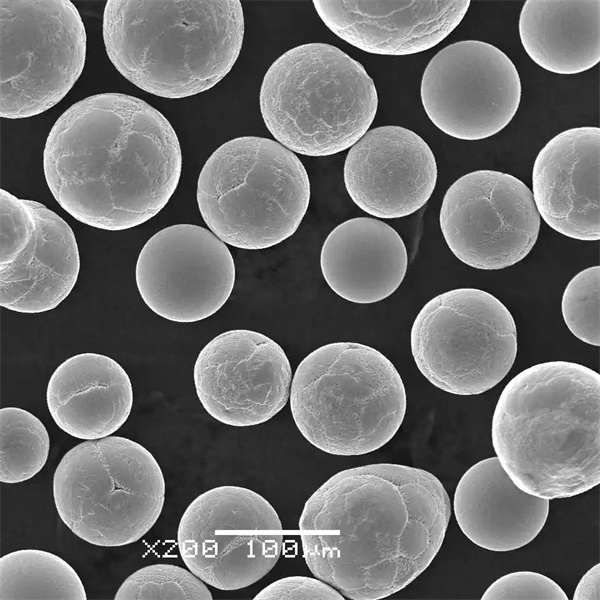
TC4 ELI powder is a high-purity extra low interstitial (ELI) variant of TC4 titanium alloy containing 6% aluminum, 4% vanadium, and low amounts of iron and oxygen.
Compared to other titanium alloys, TC4 ELI offers an excellent combination of high strength, low weight, outstanding corrosion resistance, and biocompatibility. The ELI grade ensures maximum ductility and toughness.
TC4 ELI is suitable for additive manufacturing, metal injection molding, and other powder metallurgy applications. Its fine powders enable complex geometries and thin walls in 3D printed or sintered parts.
Key properties and characteristics of TC4 ELI powder:
TC4 ELI Powder Properties
| Property | Description |
|---|---|
| Composition | 6% Al, 4% V, 0.08% max Fe, 0.13% max O |
| Density | 4.43 g/cc |
| Melting Point | 1604°C |
| Strength | 895-930 MPa ultimate tensile strength |
| Ductility | 10-15% elongation |
| Fatigue Strength | 500-550 MPa |
| Young’s Modulus | 110 GPa |
| Thermal Conductivity | 6.7 W/m-K |
| Electrical Resistivity | 178 μΩ-cm |
| Coefficient of Thermal Expansion | 8.9 μm/m-°C |
TC4 ELI provides an optimal balance of high strength-to-weight ratio, fracture toughness, fatigue resistance, and corrosion resistance. The high aluminum and vanadium content contributes to achieving high strength through solid solution strengthening and precipitation hardening heat treatments.
The low interstitial levels ensure improved ductility and fracture toughness compared to standard TC4 grade. Oxygen is limited to 0.13% max to avoid embrittlement. Iron content is also restricted.
Overall, the properties of TC4 ELI make it suitable for critical applications across aviation, space, defense, motorsports, medicine, oil and gas, and more.
Applications and Uses of TC4 ELI Powder
TC4 ELI powder is used to manufacture high-performance parts via additive manufacturing, metal injection molding, hot isostatic pressing, and other powder metallurgy techniques.
Some of the key applications and uses of TC4 ELI powder include:
Applications of TC4 ELI Powder
| Area | Applications |
|---|---|
| Aerospace | Aircraft structures, engine components, space launch systems |
| Implants | Orthopedic implants, dental implants, maxillofacial implants |
| Automotive | Motorsports components, turbocharger wheels |
| Industrial | Marine hardware, offshore drilling parts, valves, pumps |
| Energy | Wellhead components, downhole tools, pipelines |
| Defense | Ballistic armor, weapon components, protective gear |
In aerospace, TC4 ELI’s high strength-to-weight ratio makes it suitable for flight-critical static and rotating components in airframes, turbines, landing gear etc. Parts can be 3D printed or sintered to near-net shape.
In medical, the biocompatibility and corrosion resistance of TC4 ELI allow its use for orthopedic joint replacements and dental implants. Hip stems, knee implants, and cranial plates can be manufactured.
For motorsports, TC4 ELI can produce lighter and stronger components like connecting rods, intake valves, turbocharger wheels, drive shafts, and chassis parts.
In oil and gas applications, TC4 ELI is chosen for its resistance to corrosive environments. It can produce wellhead hardware, valves, pumps, and consumables like sleeves, plugs, balls, and seats.
The defense sector utilizes TC4 ELI to manufacture ballistic armor plates that stop bullets and shrapnel while minimizing weight. Other military uses include aviation parts and weapon components like barrels, receivers, rails, triggers etc.
Overall, TC4 ELI powder enables lightweight, high-performance metal parts across safety-critical industries by leveraging the latest manufacturing techniques.
Specifications of TC4 ELI Powder
TC4 ELI powder is commercially available in various size distributions, also known as particle size ranges. The powder morphology can be spherical, angular, or a blend.
Typical specifications of TC4 ELI powder include:
TC4 ELI Powder Specifications
| Parameter | Details |
|---|---|
| Particle Size Range | 15-45 microns, 45-105 microns, 105-250 microns |
| Particle Shape | Spherical, angular, blended |
| Size Distribution | D10, D50, D90 values |
| Apparent Density | 2.5-3.5 g/cc |
| Tap Density | 3.5-4.5 g/cc |
| Flow Rate | Hall flowmeter measurement |
| Chemical Analysis | Al, V, Fe, O, N, C, H, Ti |
| Lot Number | For traceability |
| Packaging | Vials, jars up to 25 kg |
Finer particle size distributions from 15-45 microns are preferred for printing complex geometries and achieving smooth surface finishes. Larger sizes over 100 microns allow faster build rates.
Spherical powders improve flowability, packing density, and sintering behavior. Angular and blended powders offer better mechanical adhesion between particles.
Apparent and tap density determine the quantity of powder required to fill a given volume. Flow rates indicate ease of dispensing during printing or injection molding.
Chemical analysis confirms that elemental composition meets grade specifications. Lot numbers provide traceability for quality control. Appropriate packaging maintains powder integrity during handling and storage.
Grades of TC4 ELI Powder
TC4 ELI powder is produced in different grades by varying the post-processing method after gas atomization. This affects the microstructure and mechanical properties.
The main grades include:
TC4 ELI Powder Grades
| Grade | Description |
|---|---|
| As-atomized | No post-processing after gas atomization |
| Annealed | Heat treated to relieve residual stresses |
| Hot isostatic pressed | Consolidated at high temperature and pressure |
| Plasma sintered | Rapidly sintered using plasma discharge |
| ISO-S | Spherical powder made by gas atomization |
As-atomized grade contains residual stresses from the rapid solidification. Annealing eliminates these stresses and makes the powder easier to work with during printing or molding.
Hipping and plasma sintering increase the density and improve the microstructure and mechanical properties of the final parts.
Spherical grade (ISO-S) offers better flowability and packing density for high quality 3D printing.
The appropriate TC4 ELI powder grade is chosen based on the specific additive manufacturing or powder metallurgy process being used.
Suppliers of TC4 ELI Powder
TC4 ELI powder is supplied by leading metal powder manufacturers as well as specialized additive manufacturing powder suppliers. Some of the major suppliers include:
TC4 ELI Powder Suppliers
| Company | Country |
|---|---|
| AP&C | Canada |
| Carpenter Technology | USA |
| Sandvik | Sweden |
| Praxair | USA |
| TLS Technik | Germany |
| AMETEK | USA |
| LPW Technology | UK |
| CNPC Powder Group | China |
These companies produce TC4 ELI powder using gas atomization and control the particle size distribution tightly. Some suppliers also provide custom post-processing like annealing, hipping, and sintering to enhance powder properties.
High purity raw materials, rigorous quality control, and specialized packaging help ensure reliable and consistent TC4 ELI powder for critical applications. Large production capabilities enable bulk supply of TC4 ELI powder.
Pricing of TC4 ELI Powder
As an advanced titanium alloy, TC4 ELI powder is more expensive than basic titanium grades like Ti-6Al-4V. Prices depend on:
- Particle size range
- Order volume
- Additional processing/quality
- Purity level
- Geographic location
Some indicative price ranges:
TC4 ELI Powder Pricing
| Particle Size | Price per kg |
|---|---|
| 15-45 microns | $80 – $120 |
| 45-105 microns | $60 – $90 |
| 105-250 microns | $40 – $70 |
In general, smaller particle sizes command higher prices due to tighter control over gas atomization. Smaller batches also cost more per kilogram compared to bulk orders.
Geographically, prices are lower for China-made TC4 ELI powder versus European/American powder. However, quality control may vary.
With increasing adoption of additive manufacturing, prices of TC4 ELI powder have come down but remain higher than conventional titanium alloys. Long term agreements and large orders can help secure competitive pricing.
How TC4 ELI Powder Compares to Other Titanium Alloys
TC4 ELI offers advantages over other common titanium alloys like Ti-6Al-4V in terms of strength, toughness, and corrosion resistance.
Comparison of TC4 ELI versus Other Titanium Alloys
| Alloy | Strength | Toughness | Corrosion Resistance | Cost |
|---|---|---|---|---|
| Ti-6Al-4V | Medium | Medium | Medium | Low |
| Ti-6Al-7Nb | Medium | Medium | High | Medium |
| Ti-555 (Ti-5Al-5V-5Mo-3Cr) | Very High | Low | Medium | High |
| TC4 ELI (Ti-6Al-4V-0.08Fe-0.13O) | Very High | High | Very High | High |
Key advantages of TC4 ELI over other titanium alloys:
- Higher strength than Ti-6Al-4V and Ti-6Al-7Nb
- Superior fracture toughness and ductility versus Ti-555
- Excellent corrosion resistance in harsh environments
- Retains properties better at extreme temperatures
- Lower density than steel alloys
- Better biocompatibility than stainless steels
- Can be anodized for color finishes
Limitations of TC4 ELI include:
- Higher cost than Ti-6Al-4V
- More difficult to machine than Ti-6Al-4V
- Susceptible to galling against itself
- Not weldable using conventional fusion welding
- Still heavier than aluminum alloys
Overall, the combination of exceptional mechanical properties, corrosion resistance, low density, and biocompatibility make TC4 ELI an advanced material of choice for critical applications despite its higher cost.
Frequently Asked Questions about TC4 ELI Powder
Here are answers to some common questions about TC4 ELI powder:
FAQs about TC4 ELI Powder
Q: What does the ELI stand for in TC4 ELI powder?
A: ELI stands for extra low interstitial content. It refers to minimal levels of oxygen and iron in the powder composition.
Q: What particle size of TC4 ELI powder is ideal?
A: 15-45 micron powder works best for printing fine features and thin walls. 45-105 micron allows faster build rates but lower resolution.
Q: What post-processing methods can be used on TC4 ELI powder?
A: Annealing, hot isostatic pressing, plasma sintering, and spherical powder manufacturing improve powder properties.
Q: Is TC4 ELI powder better than Ti-6Al-4V for 3D printing?
A: Yes, TC4 ELI has higher strength and toughness compared to Ti-6Al-4V in as-printed and post-treated states.
Q: Does TC4 ELI powder require hot isostatic pressing after additive manufacturing?
A: HIPing can eliminate internal pores and improve fatigue resistance. But for non-critical parts, as-printed TC4 ELI may suffice.
Q: What precision can be achieved with TC4 ELI powder in metal 3D printing?
A: Tolerances of ±0.1% are possible for TC4 ELI printed parts depending on the AM process used.
Q: Can TC4 ELI parts be machined after 3D printing?
A: Yes, but TC4 ELI is difficult to machine and requires rigid setups and sharp tools due to its hardness.
Q: What finish is possible for TC4 ELI AM parts?
A: As-printed surface roughness varies by process but finishing steps like grinding, EDM, and polishing allow smooth fine finishes.
Conclusion
TC4 ELI powder possesses an exceptional combination of high strength, toughness, and corrosion resistance thanks to its low interstitial titanium alloy composition of 6% aluminum, 4% vanadium, 0.08% iron, and 0.13% oxygen.
With its ability to produce lightweight, high-performance metal components for critical applications in aerospace, medical, energy, and defense sectors, TC4 ELI offers unique capabilities not matched by other titanium alloys.
TC4 ELI powder has expanded the design possibilities for next-generation engineering parts using the latest additive manufacturing and powder metallurgy techniques. As powder supplies increase and costs decrease further, usage of TC4 ELI is expected to keep rising across industries and unlock new levels of performance.
About Met3DP
Product Category
HOT SALE
CONTACT US
Any questions? Send us message now! We’ll serve your request with a whole team after receiving your message.

